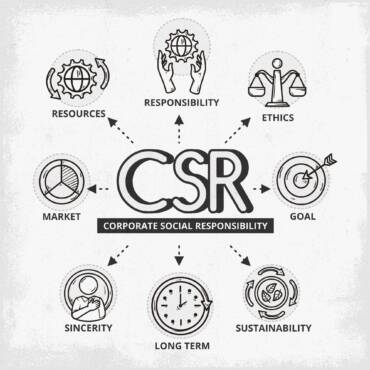Ethics in advertising are essential for building a reputable and successful brand. Consumers today seek brands that reflect honesty, transparency, and social responsibility. By adhering to ethical principles in your advertising, you establish trust, foster loyalty, and create a positive brand image. This blog explores maintaining transparency in campaigns, understanding consumer perceptions of ethical brands, and the vital role of Corporate Social Responsibility (CSR) in advertising. Discover how these strategies can help you create meaningful connections and achieve long-term success.
Principles of Ethical Ads

Transparency is Key
Transparency in advertising builds trust. You want your audience to know you’re honest and reliable. For instance, when you clearly state what’s being offered, you respect your customers’ right to make informed decisions. Transparency helps in creating a loyal customer base. Therefore, always ensure that your ads accurately represent your product or service.
Avoid Misleading Claims
Honesty in advertising means avoiding misleading claims. You don’t want to exaggerate benefits or hide limitations. Customers appreciate honesty, and it prevents disappointment. When you make truthful claims, you’re respecting your audience’s intelligence and fostering a positive brand image. Moreover, clear and accurate advertising helps in maintaining credibility.
Respect Consumer Privacy
Respecting consumer privacy is a crucial part of ethics in advertising because nobody likes intrusive ads that misuse personal data. You should always obtain consent before using personal information. Additionally, protecting your customers’ data not only complies with legal standards but also builds trust. Therefore, It’s important to value privacy to maintain a positive relationship with your audience.
Fair Competition
Fair competition is a principle that ensures a level playing field. Avoid disparaging competitors or engaging in unfair practices. You should focus on highlighting your strengths rather than undermining others. Ethical competition fosters innovation and quality. It helps in maintaining a healthy market environment.
Compliance with Laws
Following advertising laws is a fundamental aspect of ethical advertising. Ensure your ads comply with all relevant regulations. This includes truthful advertising, non-deceptive claims, and respecting intellectual property rights. Staying within legal boundaries not only protects you from legal issues but also boosts your reputation. Compliance is key to long-term success.
How to Maintain Transparency and Ethics in Advertising

Clear Communication is Crucial
Clear communication is essential for maintaining transparency in your campaigns because you want your audience to understand exactly what you’re offering. Use simple, straightforward language in your ads. Additionally, avoid jargon or overly complex terms. When you communicate clearly, you build trust and reduce misunderstandings. This approach aligns perfectly with the principles of ethics in advertising.
Disclose All Terms and Conditions
Always disclose all terms and conditions associated with your offer. Hidden fees or complicated conditions can frustrate customers. You should make all necessary information easily accessible and understandable. This transparency helps in building a positive relationship with your audience. Honesty about terms and conditions shows you value your customers’ trust.
Show Behind-the-Scenes Processes
Giving your audience a behind-the-scenes look at your processes can boost transparency. Show how your products are made or services are delivered. You could share videos or blog posts about your production methods. This openness makes your brand feel more authentic and trustworthy. People love knowing where their products come from.
Be Honest About Limitations
Every product or service has limitations. Be upfront about them. If there are restrictions or potential downsides, let your audience know. Honesty about limitations prevents disappointment and fosters trust. It shows that you are committed to ethics in advertising. Customers appreciate your honesty and are more likely to remain loyal.
Provide Clear Pricing Information
Transparent pricing is a key element of ethical advertising. You should provide clear, upfront pricing details without any hidden costs. Make sure your audience knows exactly what they are paying for. Transparent pricing builds trust and reduces the chances of customer dissatisfaction. It’s a simple yet powerful way to maintain transparency.
Engage with Customer Feedback
Engaging with customer feedback is vital for transparency. Prompt your customers to share their experiences and thoughts. Respond to both positive and negative feedback openly and constructively. This engagement shows you care about your customers’ voices. It also helps you improve your offerings based on real feedback.
Consumer Perceptions of Ethical Brands

Trust and Loyalty
Consumers trust ethical brands more. When you adhere to ethics in advertising, you show your audience you care. This builds a strong bond of trust and loyalty. People appreciate honesty and transparency. They are more likely to stay loyal to brands that respect their values and expectations.
Positive Word of Mouth
Ethical brands benefit from positive word of mouth. Happy customers love to share their good experiences. When you prioritize ethics in advertising, your satisfied customers become your best advocates. They spread the word about your integrity and transparency. This organic promotion can significantly boost your brand’s reputation.
Willingness to Pay More
Consumers are often willing to pay more for ethical brands. When you demonstrate strong ethics in advertising, you show that your products are worth the investment. Customers perceive ethical brands as high-quality and trustworthy. This perception justifies higher prices and enhances your brand’s market position.
Enhanced Brand Image
An ethical approach to advertising enhances your brand image. You want your brand to be seen as responsible and trustworthy. By focusing on ethics, you align your brand with positive values. This not only draws in customers but also keeps them loyal. A strong ethical image can distinguish you in a crowded market.
Emotional Connection
Ethical brands often forge a deeper emotional connection with their audience. When you practice ethics in advertising, you resonate with your customers’ values. This bond extends beyond the products or services you provide. It creates a lasting bond based on shared beliefs and principles.
Increased Customer Engagement
Customers are more engaged with brands they perceive as ethical. They are more likely to interact with your content and participate in your campaigns. When you prioritize ethics in advertising, you invite your audience to be part of your brand’s journey. This engagement fosters a community around your brand.
Corporate Social Responsibility (CSR) and Ethics in Advertising

Building Brand Trust
Corporate Social Responsibility (CSR) plays a vital role in ethical advertising because when you integrate CSR into your campaigns, you build brand trust. Showing commitment to social and environmental causes makes your brand more relatable. Consumers appreciate companies that give back to the community, enhancing your brand’s trustworthiness.
Promoting Positive Values
CSR allows you to promote positive values through your advertising. You can highlight your efforts in sustainability, fair trade, or charitable activities. This not only showcases your brand’s commitment to good causes but also aligns you with the values of your audience. Promoting these values strengthens your ethical advertising strategy.
Engaging Content
CSR initiatives provide engaging content for your advertising campaigns. You can share stories about your community projects or environmental efforts. These stories resonate with your audience and make your brand more appealing. When you include CSR in your advertising, you create content that is both interesting and impactful.
Enhancing Brand Image
Incorporating CSR into your advertising enhances your brand image. You want your brand to be seen as responsible and ethical. Showcasing your CSR efforts highlights your commitment to making a positive difference. This ethical stance improves your brand’s reputation and distinguishes you from competitors.
Attracting Conscious Consumers
CSR in advertising attracts conscious consumers who prioritize ethical brands. These consumers are looking for companies that align with their values. By promoting your CSR initiatives, you draw in this audience. Conscious consumers are loyal and often become brand advocates, spreading the word about your ethical practices.
Driving Long-Term Success
CSR contributes to the long-term success of your brand. When you integrate CSR with ethics in advertising, you create a sustainable brand model. This approach ensures ongoing customer loyalty and positive brand perception. Long-term success is built on a foundation of ethical practices and social responsibility.
Conclusion
In conclusion, Incorporating ethics in advertising is vital for building a trustworthy brand. Transparency in campaigns fosters audience trust and loyalty. Understanding consumer perceptions of ethical brands helps tailor your strategies to their values. Integrating Corporate Social Responsibility (CSR) enhances your brand image and attracts conscious consumers. Ethical advertising is a commitment that leads to long-term success and a positive reputation. Embrace these principles to create meaningful connections and ensure your brand stands out in a crowded market.
At Friends Media, we uphold high moral standards and believe in ethical advertising. Reach out today to elevate your brand with integrity.


